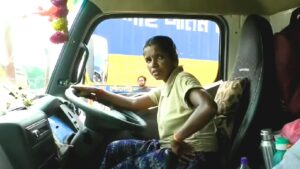Women’s Perspectives from the Pandemic’s Shadow

Approximately a hundred raised fists symbolizing resilience and solidarity filled the air at the book launch event of Pamela Philipose’s “A Boundless Fear Gripped Me: How the Other Half Lived in the Pandemic’s Shadow,” held at the Constitution Club. The event witnessed an overwhelming presence of women, some accompanied by their impatient children, who traveled from Jhuggi Jhopri clusters (JJCs) and homeless shelters across Delhi to join the launch.
In her book, Philipose shares poignant interviews conducted during the second wave of the COVID-19 pandemic, portraying the lives of these women. She sheds light on their sudden unemployment, the struggle to afford rent, rampant starvation, domestic violence, school closures, and the burden of caring for the elderly.
The event also saw the participation of esteemed personalities such as Prashant Bhushan, Harsh Mander, Dipa Sinha, Annie Raja, Anjali Bhardwaj, and Amrita Johri, who are known for their activism and social work in Delhi.
Philipose emphasized how the SNS network played a crucial role in gathering stories from vulnerable communities, offering intimate and personal accounts of their hardships. She recounted instances of rising domestic violence, the deprivation of nutritious meals due to school closures, and the overwhelming responsibility placed on women for family welfare.
During the event, Harsh Mander highlighted the paradoxical nature of the government’s messaging during lockdown, which often overlooked the realities faced by the unorganized sector and individuals living in cramped spaces. Dipa Sinha urged people to advocate for expanding the reach of ration cards and strengthening the NREGA scheme to address the deficiencies in the existing systems.
The book launch became a platform for women to share their personal anecdotes from the lockdown, revealing the challenges they faced, such as food shortages due to delayed ration cards and the burden of becoming the primary breadwinners when husbands lost their jobs. Sinha acknowledged the significance of schemes that supported vulnerable populations but also highlighted the need for improvements, including the wider distribution of low-cost cooked food and ensuring access to ration cards for all, regardless of their poverty line status.
Re-reported from the story originally published in https://indianexpress.com/









